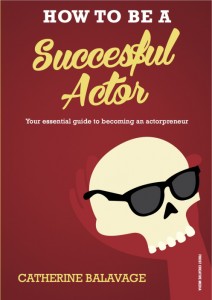 Our children’s health is extremely important to us and we all want to ensure that their teeth and gums stay healthy. Children’s dental hygiene can be confusing and with children developing new teeth at a rapid rate, it can be a tricky to determine the best hygiene solutions for them. There are lots of simple things you can adopt into your child’s everyday routine that will make a big difference to their oral health, putting them in good stead for the future. Here, Sameer Patel, Clinical Director at award-winning, highly specialist dental and orthodontics practice, elleven (www.ellevendental.com), offers his top tips on how to look after your children’s teeth…
Our children’s health is extremely important to us and we all want to ensure that their teeth and gums stay healthy. Children’s dental hygiene can be confusing and with children developing new teeth at a rapid rate, it can be a tricky to determine the best hygiene solutions for them. There are lots of simple things you can adopt into your child’s everyday routine that will make a big difference to their oral health, putting them in good stead for the future. Here, Sameer Patel, Clinical Director at award-winning, highly specialist dental and orthodontics practice, elleven (www.ellevendental.com), offers his top tips on how to look after your children’s teeth…
Brushing- Brushing teeth removes stains, plaque and bacteria on the teeth and gums, plus toothpaste that contains fluoride will help keep the enamel in the teeth strong. Make sure your children brush their teeth twice a day and change their toothbrush at least every two to three months. When teaching your children how to brush their teeth, try showing them in front of a mirror so they can see the areas they are brushing and the technique used. Your child should be brushing in a circular motion cleaning the gum and the tooth. Be careful not to use the brush too hard to ensure you don’t wear away the gum.
Flossing- Many parents are unsure as to when a child should start flossing their teeth but the answer is simple. As soon as two of your children’s teeth touch they should begin flossing. Make sure that you practice the flossing technique with them to ensure effective plaque removal, going deep in between the teeth until they reach the gum and moving the floss either side of the tooth several times to dislodge any plaque.
Eat their way to healthy teeth– Dairy products are great for keeping the enamel in teeth strong. Enamel is very similar to bone and can be kept strong with calcium found in dairy so make sure they drink plenty of milk and eat lots of yoghurt to strengthen teeth from a young age.
Regular check-ups– Take your child to the dentist when they’re as young as possible and at least once by the time they’re two. This is so they become familiar with the environment and get to know the dentist. The dentist can help to prevent decay and identify any health problems at an early stage.
Water– This is the best drink possible for your children as it is pure and also helps wash away any bacteria from their mouth. Steer clear of fizzy drinks as these are full of sugar ad are harmful to teeth enamel. Also be aware of fruit juice as although you think it may be a healthy option for your children, it is full of sugar which in the long term will cause tooth decay.
Sugar– Everyone knows that sugar is bad for teeth but did you know that there is lots of hidden sugar in foods that are considered to be healthy? You may be surprised to hear that bread contains a lot of sugar as do yoghurts and ready meals. Always read the label on food packaging and look for alternatives with less sugar.
‘H’ for Hygiene – Regular hygienist appointments will help to maintain healthy teeth and gums. The hygienist will be able to give your children’s teeth a thorough clean, something of which they cannot achieve by brushing and flossing alone.
Healthy Snacks- When considering giving your child a snack you need to ensure that it is healthy and low in sugar. Try giving them plain popcorn as a snack as not only is it naturally low in fat, if eaten after a meal it can be very beneficial. The texture of the popcorn acts as natural toothbrush removing some of the harmful bacteria your child may have eaten during their meal.
Thumb sucking- Thumb sucking is very common habit for children but as their permanent teeth develop, sucking their thumb will cause the teeth to be pushed outwards, resulting in them needing to have orthodontic work. Try to encourage your children to stop as young as possible.
Milk before bed– You may be surprised but drinking milk before bed time is very bad for teeth. Although milk is great for growing bones and teeth, the sugars in milk will cause tooth decay as your child sleeps. The reason behind this is that your saliva glands stop working when you are asleep, resulting in your child saliva not able to break down the bacteria in their mouth.
Straighten up their smile- Did you know that straighter teeth are easier to keep clean reducing the risk of long term gum disease and dental decay? Not only is straighter teeth important for your child’s self-esteem, having straight teeth are also easier to clean and can will reduce the risk of gum disease and tooth decay. With the latest technology, your child now has several different brace options from lingual, invisalign and the traditional Damon braces.






